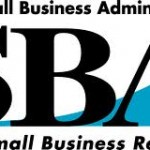Business Startup Checklist

This list is not designed to be all encompassing. Rather, it is designed to bring to light some of the many things you need to consider when starting a business. You should see advice and assistance from experts and trusted advisors before investing your hard earned time and money into your new venture. This may include, but not be limited to, attorneys, accountants, insurance specialists, bankers, and marketing consultants.
1. Select a Name
There are many factors that go into naming a business, some of which are legal, many of which relate more to memorable and marketable. If directories are a big source of customers, for example, consider the first letter of the name, and where you will be alphabetized. Another consideration is how easy the name is to say, spell, and remember correctly. And finally, if a website is critical, which it probably will be, search for the domain name URL during the naming process.
Here’s a excellent article that has “19 steps…to create a company name or tag line that sparkles with distinction”. Click here to read it.
2. Choose a Legal Structure for your Business
There are basically have 4 choices when selecting a legal structure.
- Sole Proprietorship
- Partnership
- Limited Liability Company (LLC)
- Corporation or S-Corporation
3. Develop a Business Plan
Research and history shows that businesses with a plan are much more likely to survive, succeed, and prosper. A business plan is your roadmap, with plans and contingencies for the way you will run your business. Some of the key components are the business structure, partnerships, business activities, resources needed and/or employed, value proposition, customer identification and segmentation, cost structures, revenue streams, and how profits will be disbursed, provided you have profit to disburse.
Here’s a link to a great discussion of business plans at the SBA.
4. Open a Company Bank Account(s)
You will want to shop around a bit, and talk to a few banks. The can let you know what they require of startup businesses to open up accounts. Some will offer packages that include business banking, various accounts, and even merchant services, which can allow you to accept different types of payment such as credit cards
5. Find and Lease or Buy Office, Warehouse or Retail Space (unless you are home based)
Depending on your type of business (retail, office or warehouse), arrange for office space to be leased. Contacting a commercial realtor in your area can be helpful. Also, make sure to arrange for utilities and office furniture.
6. Obtain Federal Tax ID, Licenses and/or Permits As Necessary
The key here is to learn what you need to have to operate your business. Business entities will typically require Federal Tax IDs, and local municipalities often require business licenses. These are in addition to any other required licenses or permits that your particular business might require. Again, asking accountants, attorneys, bankers, and consultants can help speed up your understanding the processing of these. You will likely be taking a least a trip or two to your local government offices during your business formation time.
7. Create You Business Record and Financial Systems
Don’t leave this for guesswork. Businesses should be run like businesses, and that means keeping records and keeping track of all finances, in and out. While it may be as easy as a simply record and bookkeeping system, there are many online and computerized systems that will help make this a much easier task.
8. Create Business Systems and Hire Employees
Many companies start as just one or two people, but others are more involved. Develop your systems and processes before you start. What hours will you work or be open for business? Where does your product come from? Which employees have responsibility for what? While this can be a part of your business plan, this is really about the operations of the business. Many businesses will have a “soft opening”, where they start doing business, testing their processes and employee training with friends and family as customers before a big grand opening to the general public. This helps to “shake out the bugs” and start you off on the right foot.
9. Create Your Business Identity
In addition to your name and place of business, you need to create an identity. This usually includes signs, logos, business cards, stationery, and possibly brochures. These are the things that people will see and get to know you buy.
10. Start Marketing
Marketing is everything you do to go from creating your products and services to getting your customers to buy them. Marketing is a never ending process, and one most startups really need to focus on. •
Save
Save
Save












Leave a Reply